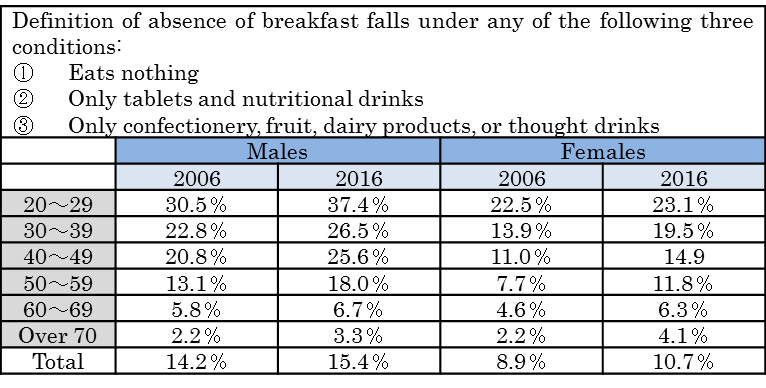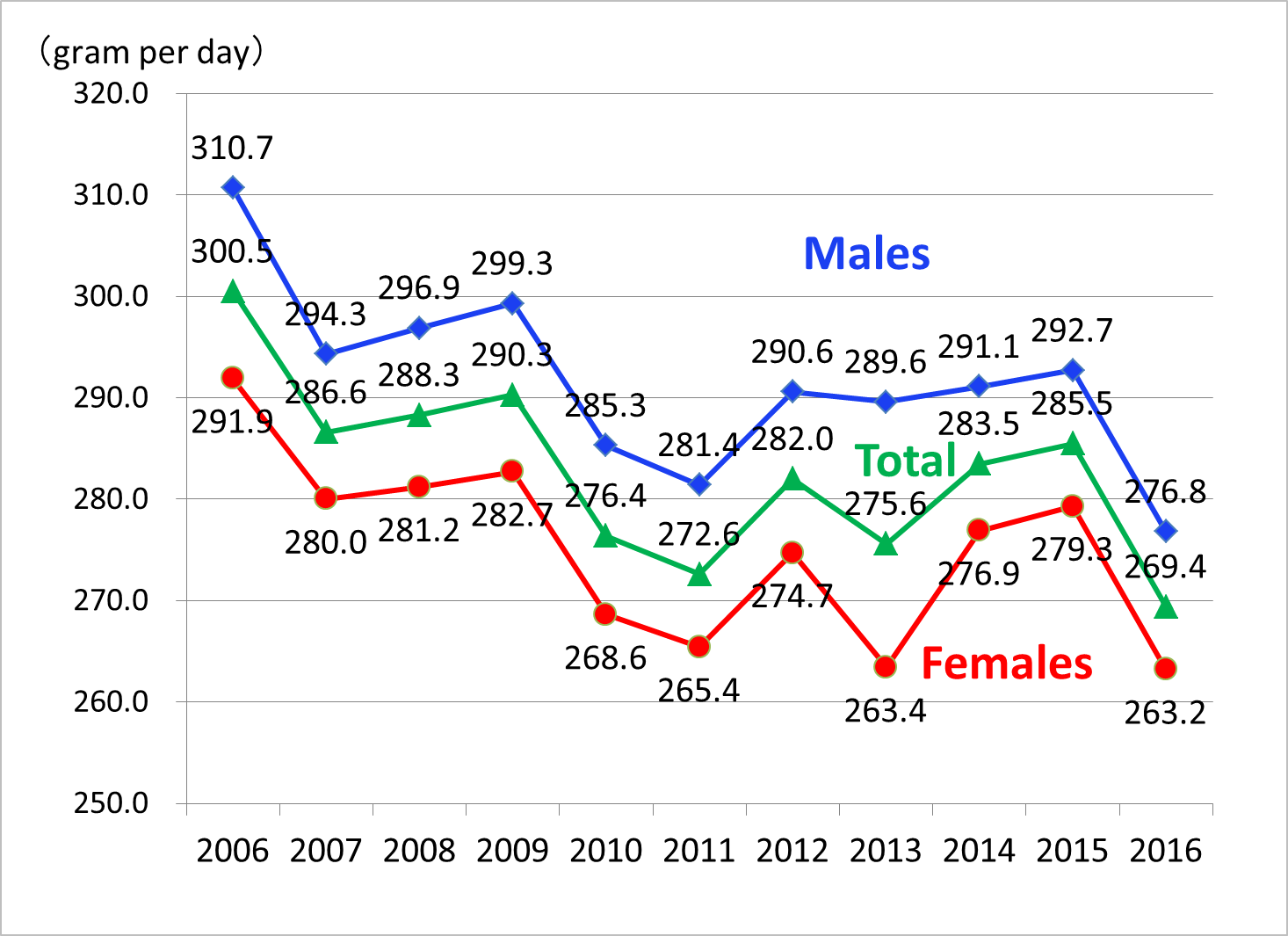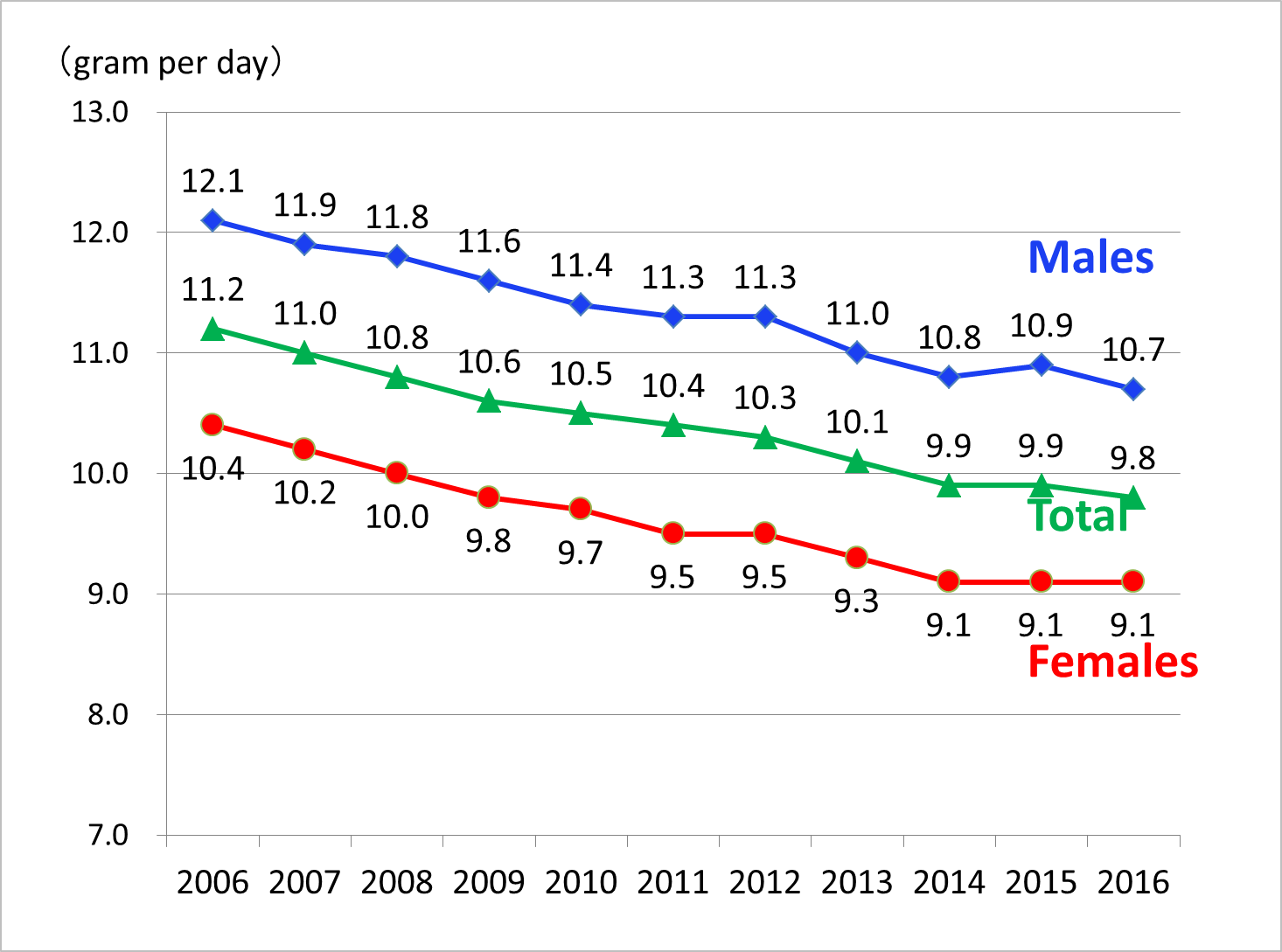Column Finance and the Social Security System 2018.02.06
【Aging, safety net and fiscal crisis in Japan】No.29: Japanese diet is inappropriate
The reputation that Japanese food is good for your health has spread throughout the world. However, the quality of food in the Japanese diet has declined. First, the proportion of both males and females in their 20s and 30s who skip breakfast is increasing (Table 1). Next, the daily intake of vegetables is decreasing. The Ministry of Health, Labor and Welfare has set an intake goal of 350 grams per day for vegetables; however, according to a 2016 survey, results show an intake of only 276.8 grams for males and 263.2 grams for females (Figure 1). Finally, Japanese people overdose on salt. The World Health Organization (WHO) guidelines set 5 grams of salt per day as the proper intake value. The U.S. government has also set 3.8 to 6 grams of salt per day as a guideline for cardiovascular disease prevention. On the contrary, Japanese salt intake per day is as much as 10.7 grams for males and 9.1 grams for females (Figure 2).

(Source)Ministry of Health, Labor and Welfare


